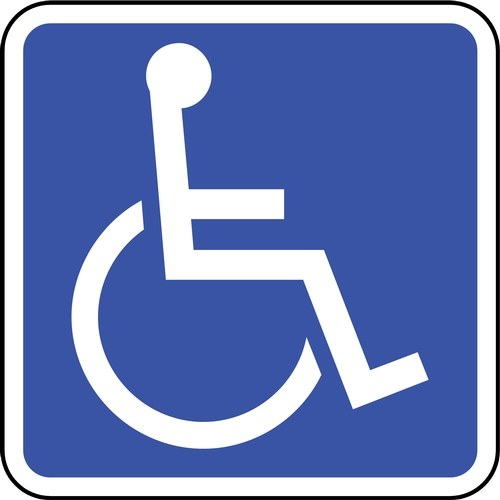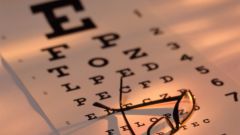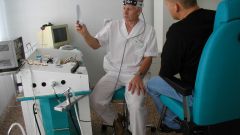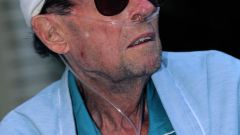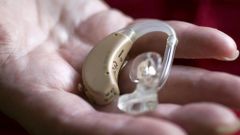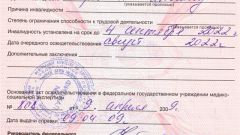The term "disability" is total and can be subdivided into disability by health condition. For example, a person may be visually impaired, in neurology; the person may not have limbs and so on.
If a person is not able to perform vital functions, a doctor of relevant specialization, it should direct to the special medical and social expertise. The experts should submit as many documents confirming the fact of inability to perform vital functions. The Commission needed to assert their rights, explaining that the presence of this particular disease interferes with normal life.
- a direction on mediko-social examination
- passport and photocopy of passport
- a certified copy of the work book
- patient card
- statement from medical institutions, as well as their photocopies
- application for examination
- characteristics from the place of work or study
Should not be limited only to the list given in the formation of package of documents. It is possible that the medical-social expertise you will be asked to submit additional documents confirming the existence of the disease entitling you to disability.
A person is disabled permanently in the case when both eyes see nothing and the treatment is ineffective. You can get a group of disability in the following cases:
- Group 1 is given when a person actually sees nothing, or visual acuity of the eye that sees better, not 0.04
- 2 group can be obtained with the visual acuity from 0.05 to 0.1
- 3 group of disability set when visual acuity in the eye, seeing better is in the range from 0.1 to 0.3
There is a list of diseases of neurological nature, with which it is possible to obtain a particular disability group. In order to qualify, the candidate with disabilities must be able to prove the presence of a particular illness, entitling him to a particular disability group.
If a person is not able to perform vital functions, a doctor of relevant specialization, it should direct to the special medical and social expertise. The experts should submit as many documents confirming the fact of inability to perform vital functions. The Commission needed to assert their rights, explaining that the presence of this particular disease interferes with normal life.
Some of the documents required for registration of disability
- a direction on mediko-social examination
- passport and photocopy of passport
- a certified copy of the work book
- patient card
- statement from medical institutions, as well as their photocopies
- application for examination
- characteristics from the place of work or study
Should not be limited only to the list given in the formation of package of documents. It is possible that the medical-social expertise you will be asked to submit additional documents confirming the existence of the disease entitling you to disability.
Disability impaired
A person is disabled permanently in the case when both eyes see nothing and the treatment is ineffective. You can get a group of disability in the following cases:
- Group 1 is given when a person actually sees nothing, or visual acuity of the eye that sees better, not 0.04
- 2 group can be obtained with the visual acuity from 0.05 to 0.1
- 3 group of disability set when visual acuity in the eye, seeing better is in the range from 0.1 to 0.3
Disability in neurology
There is a list of diseases of neurological nature, with which it is possible to obtain a particular disability group. In order to qualify, the candidate with disabilities must be able to prove the presence of a particular illness, entitling him to a particular disability group.
